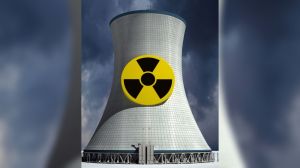Their 29-paragraph joint statement focused exclusively on the bilateral agenda. Unlike the 58-paragraph statement last June during PM Modi’s State visit to the US, it made no mention of regional and global issues, counter-terrorism or situation in the neighbourhood including Afghanistan, Pakistan and Myanmar.

After the meeting, the Prime Minister’s Office said: “The two leaders also exchanged views on a number of regional and global issues. They agreed that the India-US partnership was beneficial not only for the people of the two countries but also for global good.” Modi tweeted, “Our meeting was very productive. We were able to discuss numerous topics which will further economic and people-to-people linkages between India and USA. The friendship between our nations will continue to play a great role in furthering global good.”
Said Biden: “Great seeing you, Mr. Prime Minister. Today, and throughout the G20, we’ll affirm that the United States-India partnership is stronger, closer, and more dynamic than any time in history.”
While there was no mention of the Russia-Ukraine conflict like in June, there was a reference to a “free, open, inclusive, and resilient Indo-Pacific” — an oblique reference to China’s aggressive behaviour.
Considering the Biden visit is ostensibly for the G20 summit, it figures prominently in the third paragraph and signals that New Delhi and Washington will work towards a joint communique.
Echoing the June statement, the joint statement said that both leaders “re-emphasized that the shared values of freedom, democracy, human rights, inclusion, pluralism, and equal opportunities for all citizens are critical to the success our countries enjoy and that these values strengthen our relationship.”
Story continues below this ad
However, on many of the agreements arrived at in June, Friday’s bilateral added details and specifics of implementation.
On the GE jet engines deal, the leaders welcomed the forward movement — completion of the Congressional Notification process on August 29 and the commencement of negotiations for a commercial agreement between GE Aerospace and Hindustan Aeronautics Limited (HAL) to manufacture GE F-414 jet engines in India.
In June, both sides had welcomed India’s plans to procure General Atomics MQ-9B HALE UAVs — powerful drones — and this time, Biden welcomed the “issuance of a Letter of Request from the Ministry of Defence of India” to procure 31 such units expected to substantively enhance the intelligence, surveillance and reconnaissance (ISR) capabilities of India’s armed forces across all domains.
On small n-reactors, too, both sides took the June commitment forward by flagging “intensified consultations between the relevant entities.” Launching the Initiative on Critical and Emerging Technology (iCET) as a major milestone in India-U.S relations, in June, this time both sides decided on a midterm review of iCET in September 2023 and to work towards an annual review, co-led by the National Security Advisors of both countries, in early 2024.
Story continues below this ad
Biden congratulated Modi on Chandrayaan-3’s historic landing in the south polar region of the Moon, as well as the successful launch of India’s first solar mission, Aditya-L1. While they welcomed efforts towards establishment of a working group for commercial space collaboration under the existing India-US Civil Space Joint Working Group, the new element this time is the decision to increase coordination on “planetary defence” and the protection of “Earth and space assets from the impact of asteroids and near-Earth objects.”
Last June, the leaders had committed to holding a India-US Cancer Dialogue, this time they announced the date: it will be launched in November 2023 and the US-India health dialogue in October 2023 in Washington DC.
In June, both sides had envisaged a first-of-its kind, multi-billion-dollar investment platform to provide catalytic capital for greenfield renewable energy projects and this time, they put their money on it — India’s National Investment and Infrastructure Fund and the US Development Finance Corporation exchanged letters of intent to each provide up to $500 million towards an investment fund.
The “Innovation Handshake” mentioned in June was fleshed out to include “two anchor events in the fall (one in India and one in the United States)”, in which the two sides will collaborate to bring together start-ups, private equity and venture capital firms to build linkages between the two countries’ innovation ecosystems.
Story continues below this ad
Another new element in this joint statement is an agreement on the recovery of remains of fallen US soldiers during the Second World War.
In June, the leaders had welcomed the setting up and launch of the India-US Defense Acceleration Ecosystem (INDUS-X), and had thought of a network of universities, startups, industry and think tanks. This time, specifics were detailed involving IIT Kanpur, Penn State University, US accelerator M/s Hacking 4 Allies (H4x) and IIT Hyderabad.
On trade disputes, the agreement lauded the settlement of the seventh and last outstanding India-US World Trade Organisation (WTO) dispute. This was beyond the settlement of six outstanding bilateral trade disputes in the WTO in June 2023.
“United States Trade Representative Katherine Tai today announced that the United States and India have agreed to resolve their last outstanding dispute at the World Trade Organization, India — Measures Concerning the Importation of Certain Agricultural Products (DS 430). As part of the agreement, India also agreed to reduce tariffs on certain US products, including frozen turkey, frozen duck, fresh blueberries and cranberries, frozen blueberries and cranberries, dried blueberries and cranberries, and processed blueberries and cranberries.”









